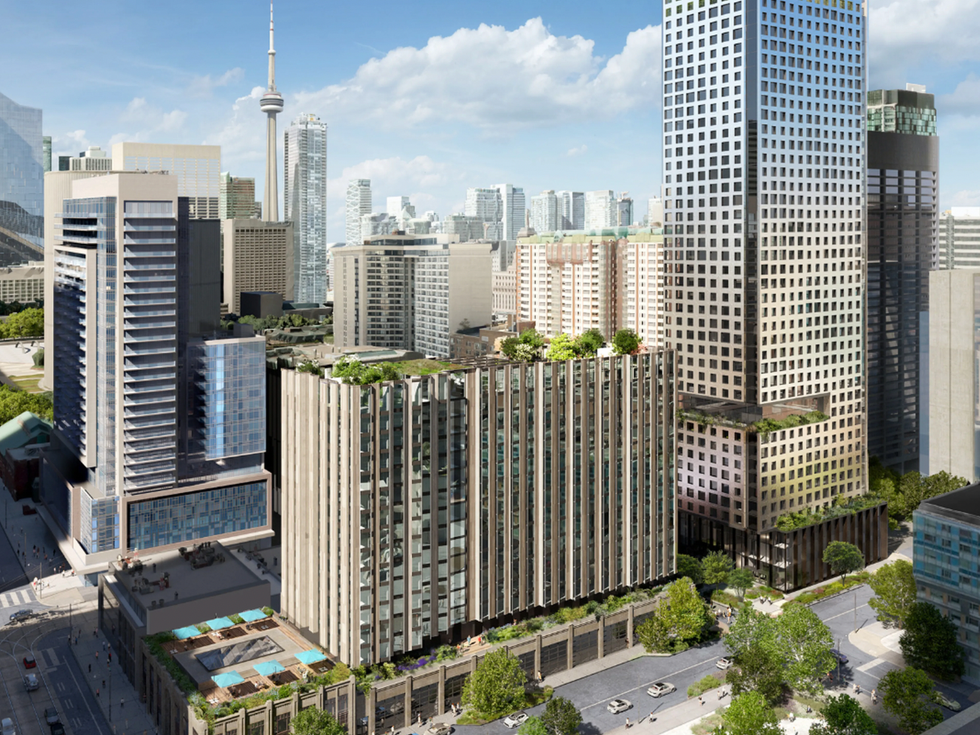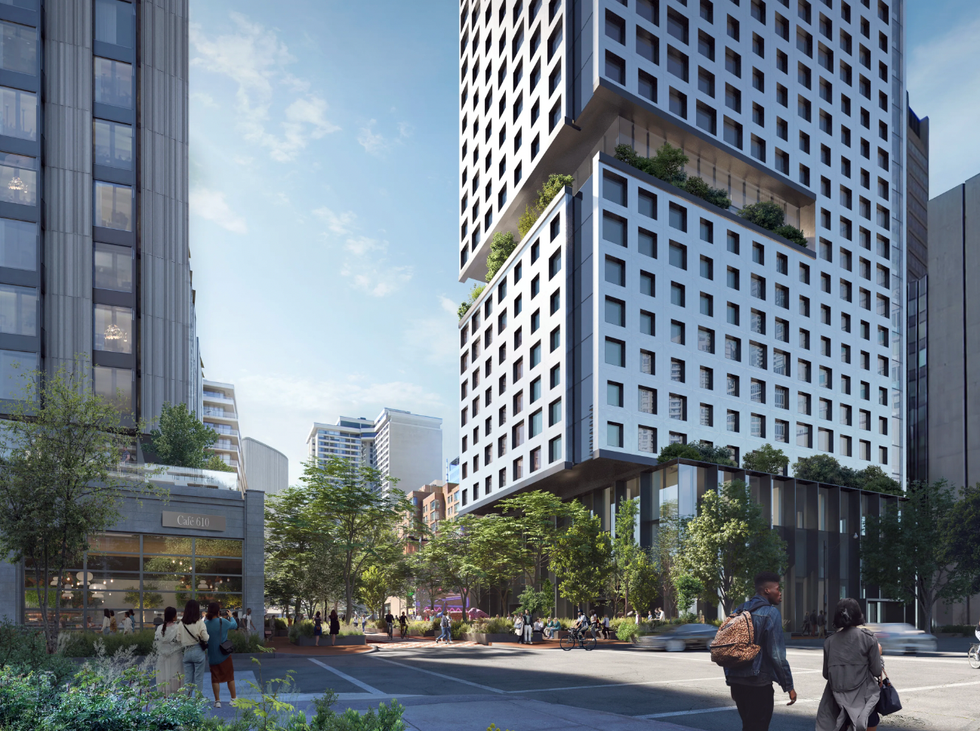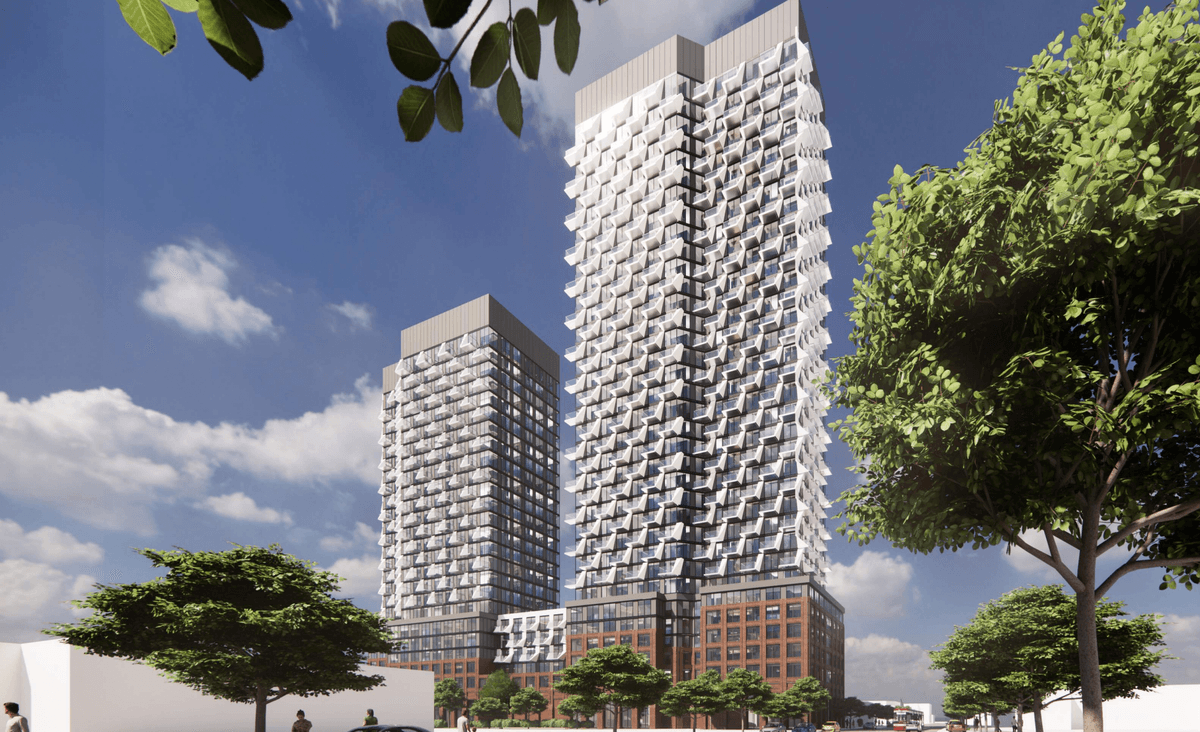On Thursday morning, the City of Toronto and CreateTO announced the development partners and vision for the redevelopment of the defunct Toronto Coach Terminal.
Located at 610 Bay Street and 130 Elizabeth Street, the bus terminal served as the City's main hub for intercity buses from 1931 up until mid-2021 when it was replaced by the Union Station Bus Terminal. It joined seven other underutilized City-owned properties slated for redevelopment in October 2019, and a shortlist of developers was revealed in June 2023.
From that shortlist, investment firm Kilmer Group and Toronto-based developer Tricon Residential have been chosen as the preferred proponents for the redevelopment of the terminal into a mixed-income, mixed-use development.
“We are incredibly proud to partner with the City of Toronto to increase the supply of rental housing in the Discovery District," says Andrew Joyner, Managing Director and Head of Multi-family at Tricon. "The Kilmer-Tricon Partnership has a demonstrated track record of partnering with all three levels of government to deliver innovative, large-scale, mixed-income rental communities where all residents thrive, and the Coach Terminal redevelopment will add new, much-needed affordable units to Toronto’s most important technology and health sciences cluster.”
The 100% purpose-built rental development, which will deliver 873 new homes, would consist of two towers with residential, retail, and public spaces. Designed by award-winning architectural firms Studio Gang, architects-Alliance, and Smoke Architecture, with landscape design by CCxA, the vision for the development is based on the Indigenous principle of the Seven Directions. "The goal is to create a complete community that puts people first, invigorates the surrounding area and creates tree-lined public spaces that connect the surrounding neighbourhoods," says a press release.


According to the release, the redevelopment will include 290 affordable housing units, a new 23,000-sq. -ft Toronto Paramedic Services hub, and "employment opportunities with a focus on innovative uses that take advantage of the unique location within the city’s Discovery District." The redevelopment would also involve the "adaptive reuse of the existing heritage building as well as streetscape improvements."
More specifically, there would be a state-of-the-art organ repair centre for heart, lung, kidney and liver transplants operated by University Health Network, affordable housing partnerships with the University Health Network, the Hospital Workers’ Housing Co-operative, Woodgreen Community Services, the March of Dimes, and Wigwamen to provide housing options for essential hospital workers and their families, a new public plaza between the two buildings, and adaptive reuse of the terminal and its bus bays.
“We need to build more affordable homes in Toronto. That’s why I am so pleased that this project will transform the former Toronto Coach Terminal into not only new rental and affordable housing, but a thriving hub with healthcare facilities and space for small business to start and grow," says Mayor Olivia Chow. "This project sets a high bar for how we can build more homes, while celebrating our City’s history and embracing Indigenous knowledge as we build new communities.”
Additionally, the redevelopment would utilize a geothermal district energy system and sustainable building design that exceeds the requirements of the Toronto Green Standard and the Canadian Green Building Council’s Zero Carbon Building Design Certification.
The City and CreateTO say that the project will be completed and leasing of rental homes will commence at 610 Bay St. in Q1 2029, and in Q1 2030 for 130 Elizabeth St.
- CreateTO Moving Forward With Toronto Coach Terminal Redevelopment ›
- Former Toronto Coach Terminal Site Moves Closer to Redevelopment ›
- 92 Affordable Housing Units Completed At 65 Dundas Street ›
- KingSett Proposes 67-Storey Heritage Revamp For Yonge St ›
- Historic Industrial Building Redevelopment Proposed By Bloor GO ›
- Kilmer-Tricon Plan 16, 43 Storeys For Toronto Coach Terminal ›





















